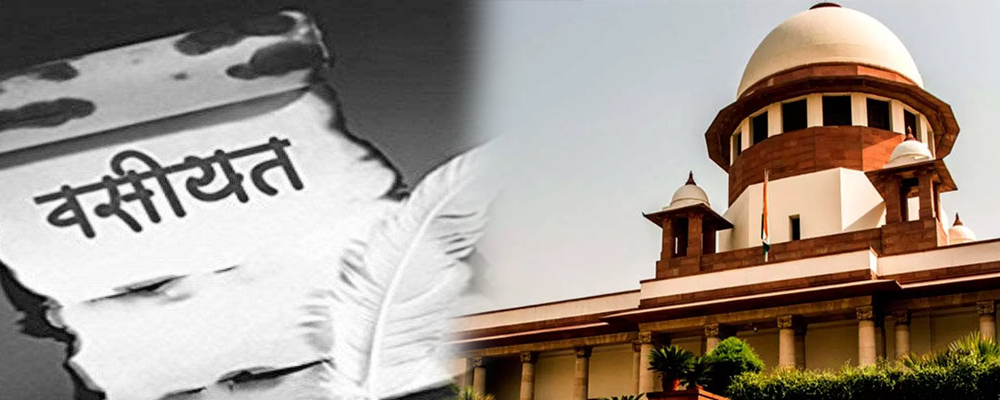Will is an instrument prepared by a person, which explains his wish regarding his property’s disposal after his death. His intention in regards to the disposal of his property after his death through a Will is ensured by the law.
The Indian Succession Act,1925 provides provisions regarding Will in case of Hindus, Buddhists, Sikhs or Jains in India.
One of the important features regarding preparation of the Will is that it can be revoked any time by the testator during his lifetime, thus a person is free to change his will, anytime he wishes.
Section 70 of the Succession Act provides for the provisions related to which a person may change his Will.
Recently, in the Case of Badrilal v Suresh & Ors., the question of revocation of a will by the agreement between the beneficiaries of the will was raised in The Supreme Court of India.
Facts of the Case:
The testator Mangilal was the owner of a portion of land, which was mentioned in his will executed on 6th May 2009. In the Will a bequest was made to Ramkanya (daughter of the testator) and to Suresh and his two brothers.
After the death of Mangilal on 26th June 2009, Suresh And Ramkanya entered into an agreement which recorded the portion of land they were entitled to.
On 26th February 2011, Ramkanya sold 5 bigha land to appellant Badrilal.
Need A Legal Advice
The internet is not a lawyer and neither are you. Talk to a real lawyer about your legal issue

Suresh filed a suit claiming a perpetual injunction restraining Badrilal from interfering with his possession of the 5 Beegha land sold to him by Ramkanya, and asked for the declaration from the Court that the sale deed dated 21st Feb 2011 is null and void.
It was decreed by the trial Court that the will executed by Mungilal was enforceable. Also, the agreement between Ramkanya and Suresh was illegal as well as the sale deed was void as she had no authority to sell the land.
While in an appeal to the District Court, the Court dismissed the appeal and held that the Ramkanya was not entitled to sell her share to appellant without having her land separated by a partition and thus, the sale deed was void in respect of the right of Suresh.
After having appealed for the second time, which was dismissed by the Single Bench of Madhya Pradesh High Court, Suresh filed an appeal to The Supreme Court of India which came under the consideration of the Bench of Justices Ajay Rastogi and Abhay S.
Issue Raised:
The primary issue for consideration of the Bench was:
Whether the Agreement 12th may 2009, between Ramkanya and Suresh will amount to revocation of the will dated 6th May 2009?
Judgment:
It was held by the Court that-
The Will dated 6th May 2009, will not be revoked by an agreement made on 12th May 2009
The Supreme Court upheld the decree passed by the District Court with a modification.
It was clarified by the Supreme Court that the Sale Deed by Ramkanya will be valid to the extent of the land bequeathed to her under the Will executed by Mangiram.
As for the Issue Raised before the Supreme Court, The Court observed that, Under Section 70 of the Indian Succession Act,1925, revocation of the will could be made by following ways only:
by execution of another Will or codicil
A writing by the testator which explains his intention to revoke the Will and executed in a manner by which a Will is required to be executed.
By burning the Will or tearing it or destroying it otherwise by the testator or someone else in the presence of the testator or under his direction with the intention of revoking the Will.
As the agreement between the parties was not executed by the testator or in his presence, The Court concluded that the Will was not revoked by the Compromise Agreement as none of the conditions mentioned under Section 70 of the Act were met. Lead India provides legal assistance in the cases involving issues related to the property matters, for example, partition, registration of will, property registration, etc. Legal guidance is also provided by a team of experienced lawyers.





 Talk to a Lawyer
Talk to a Lawyer